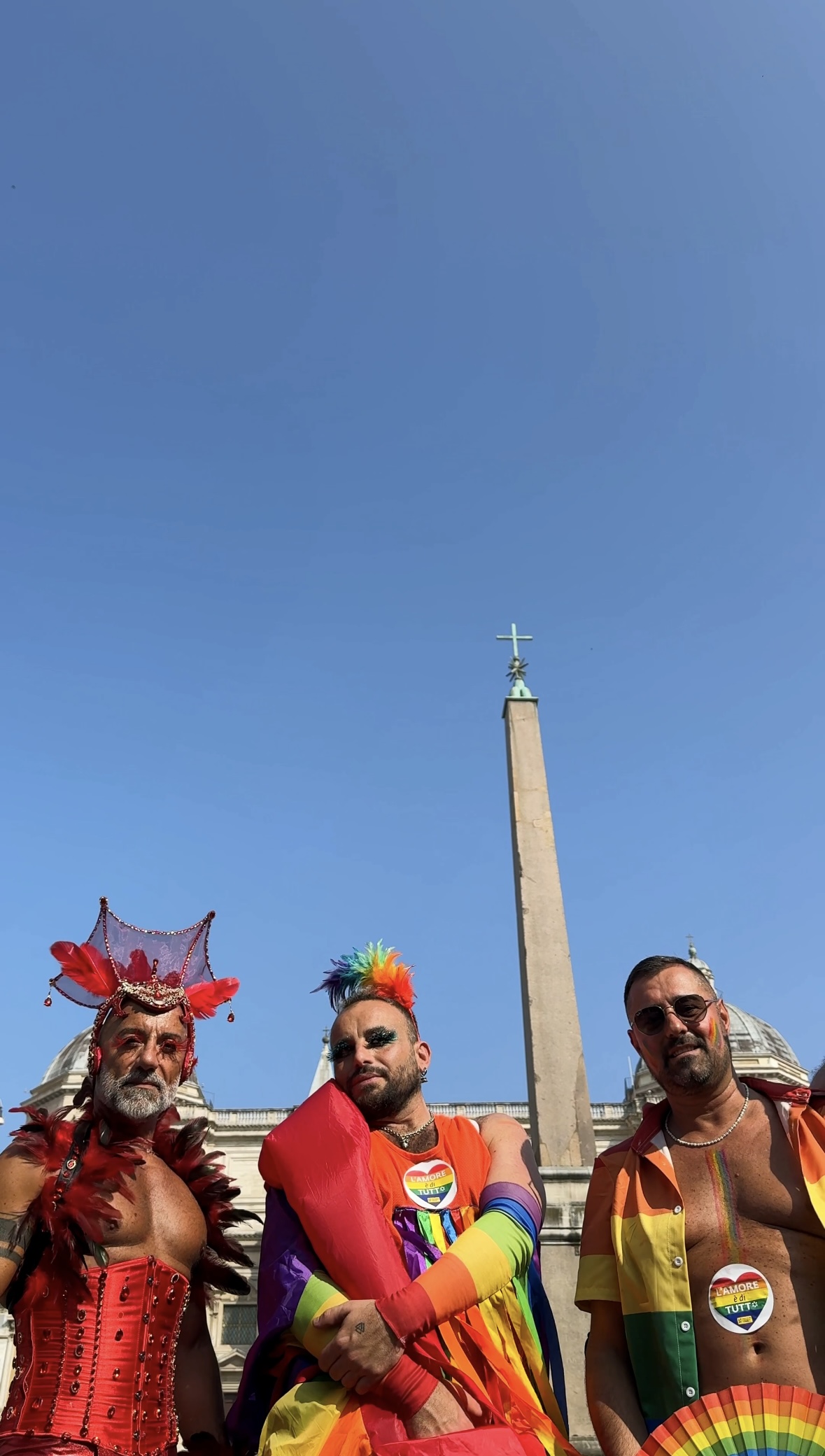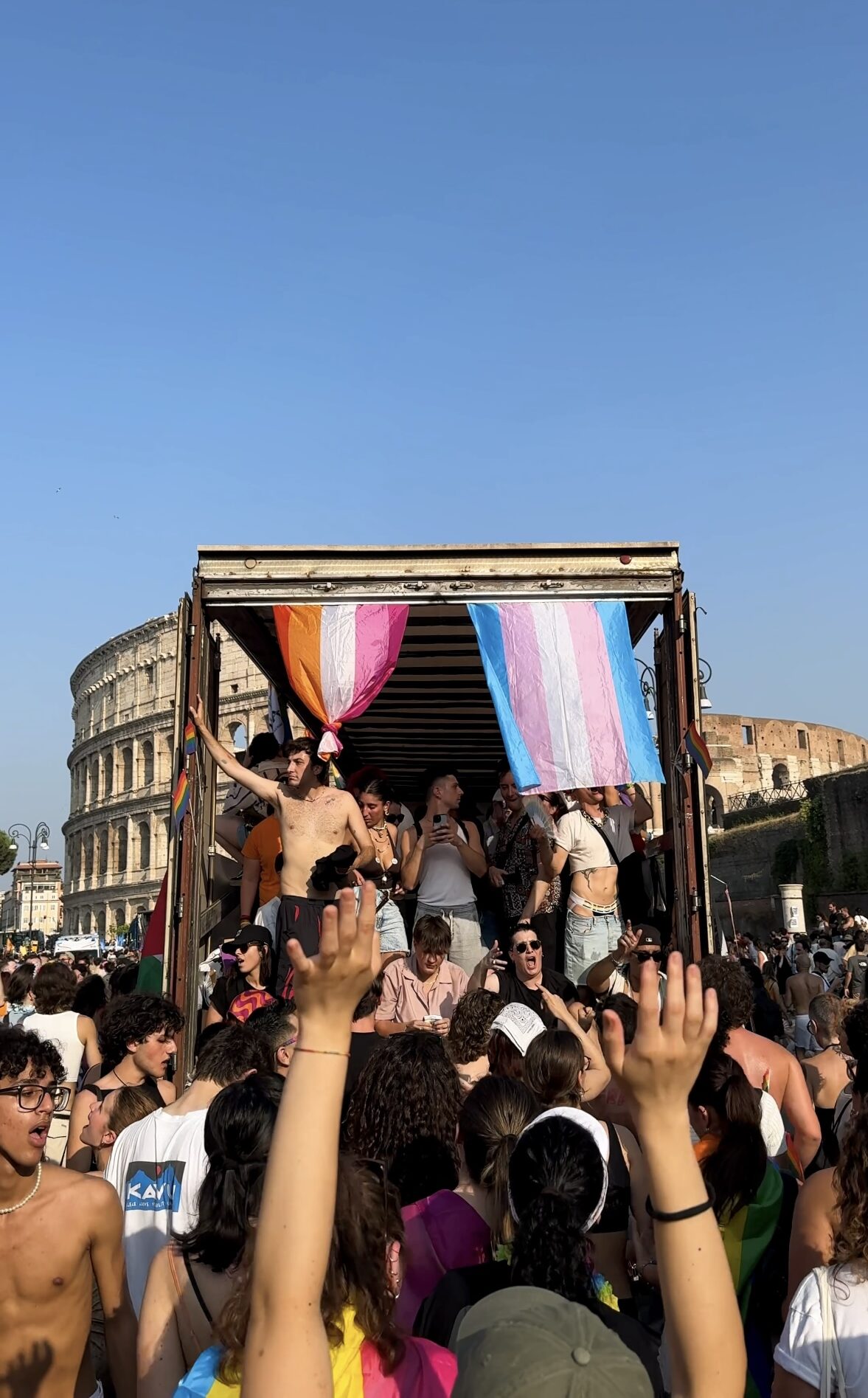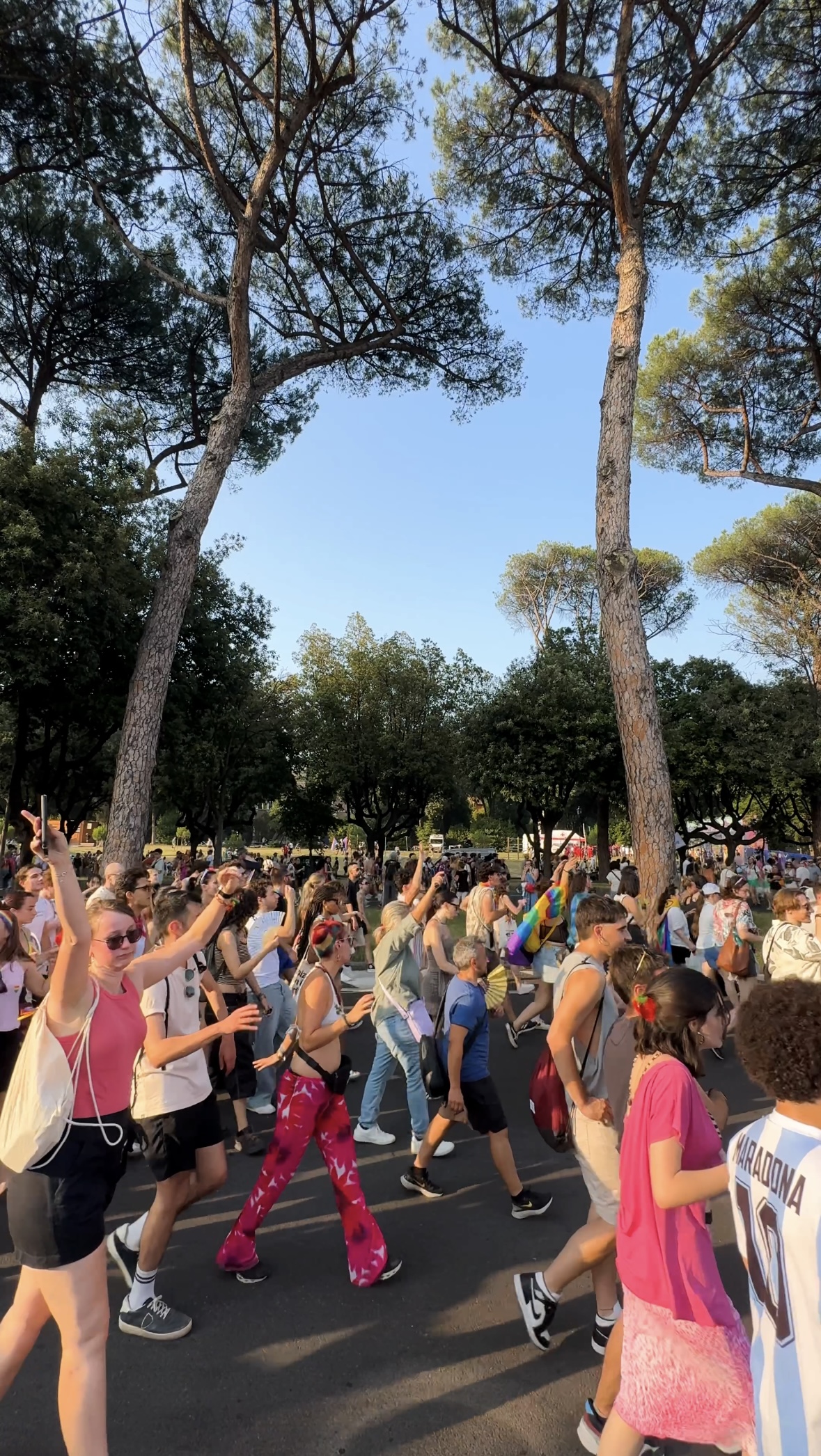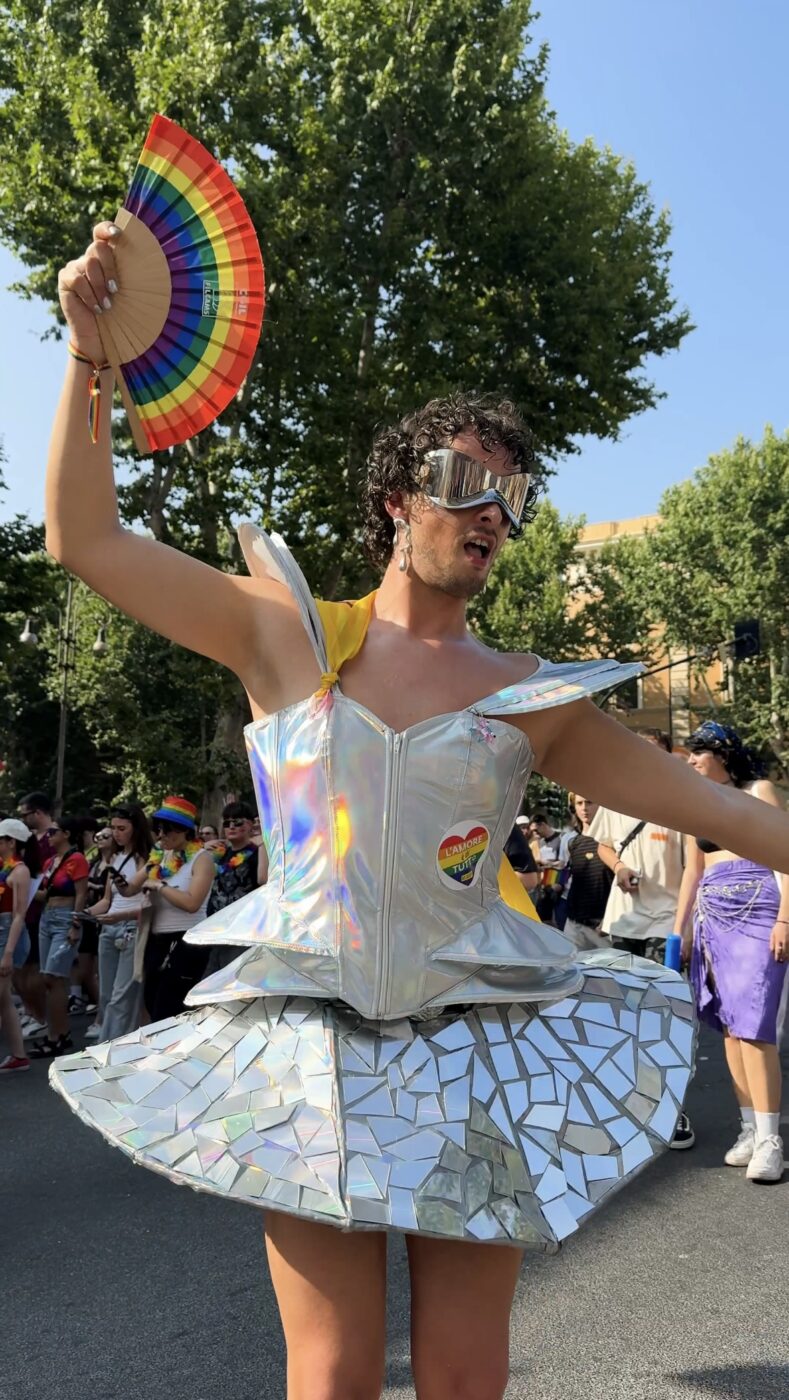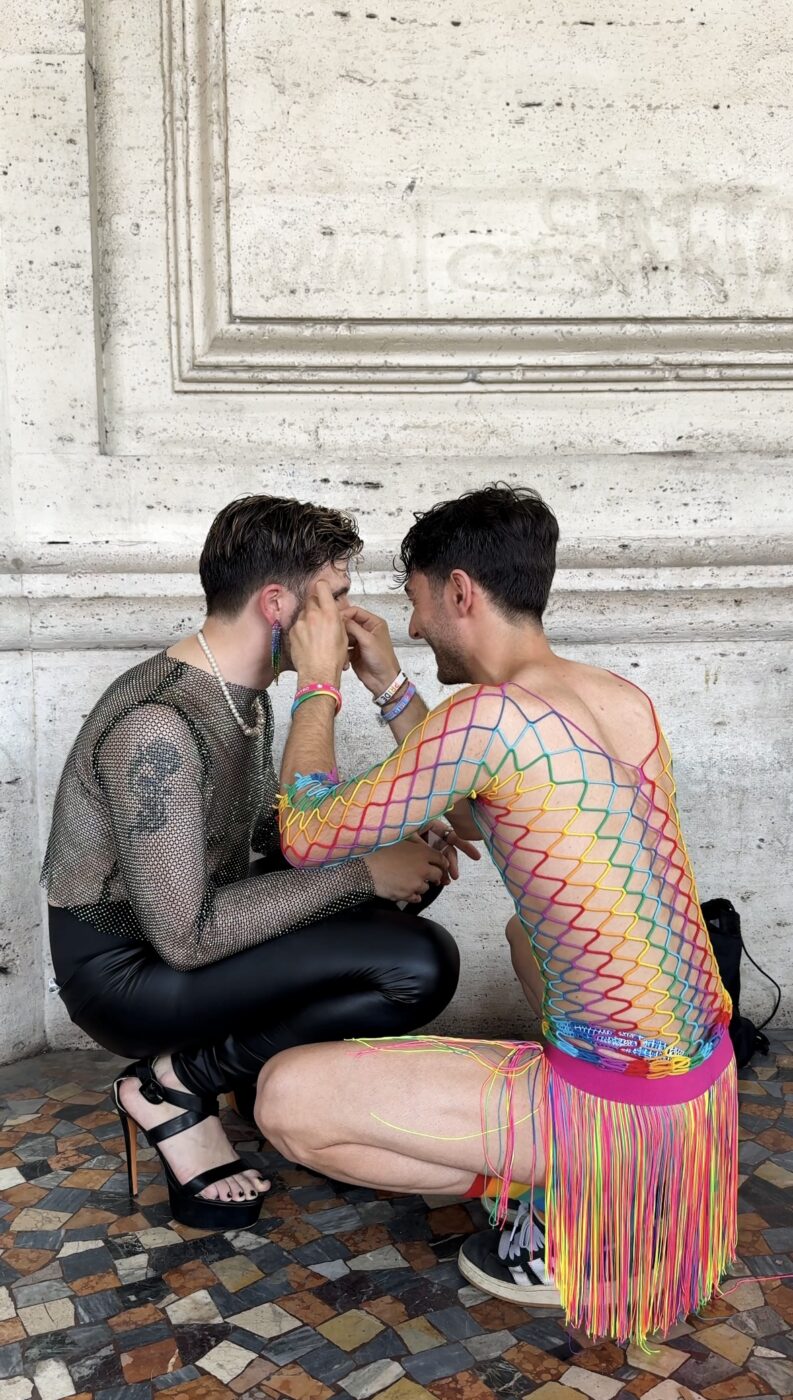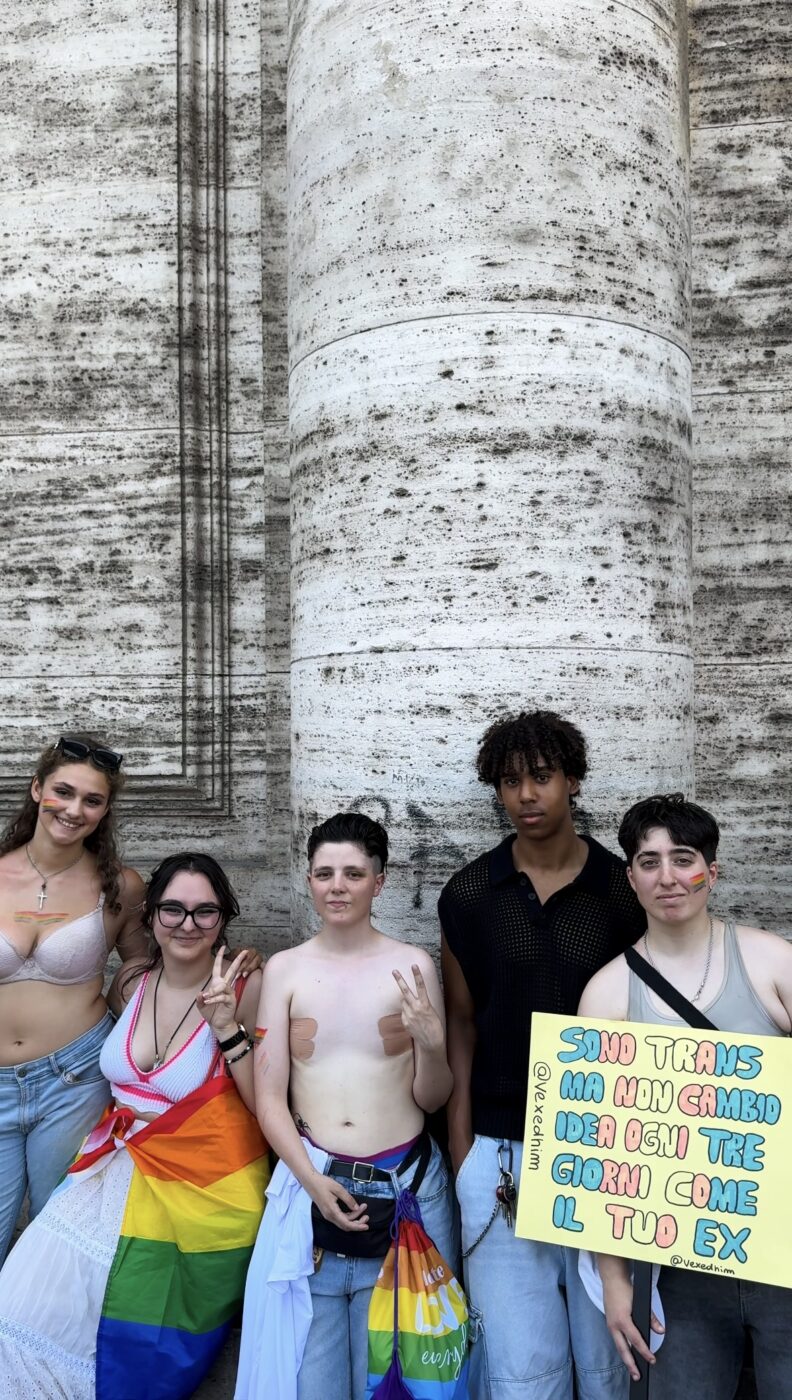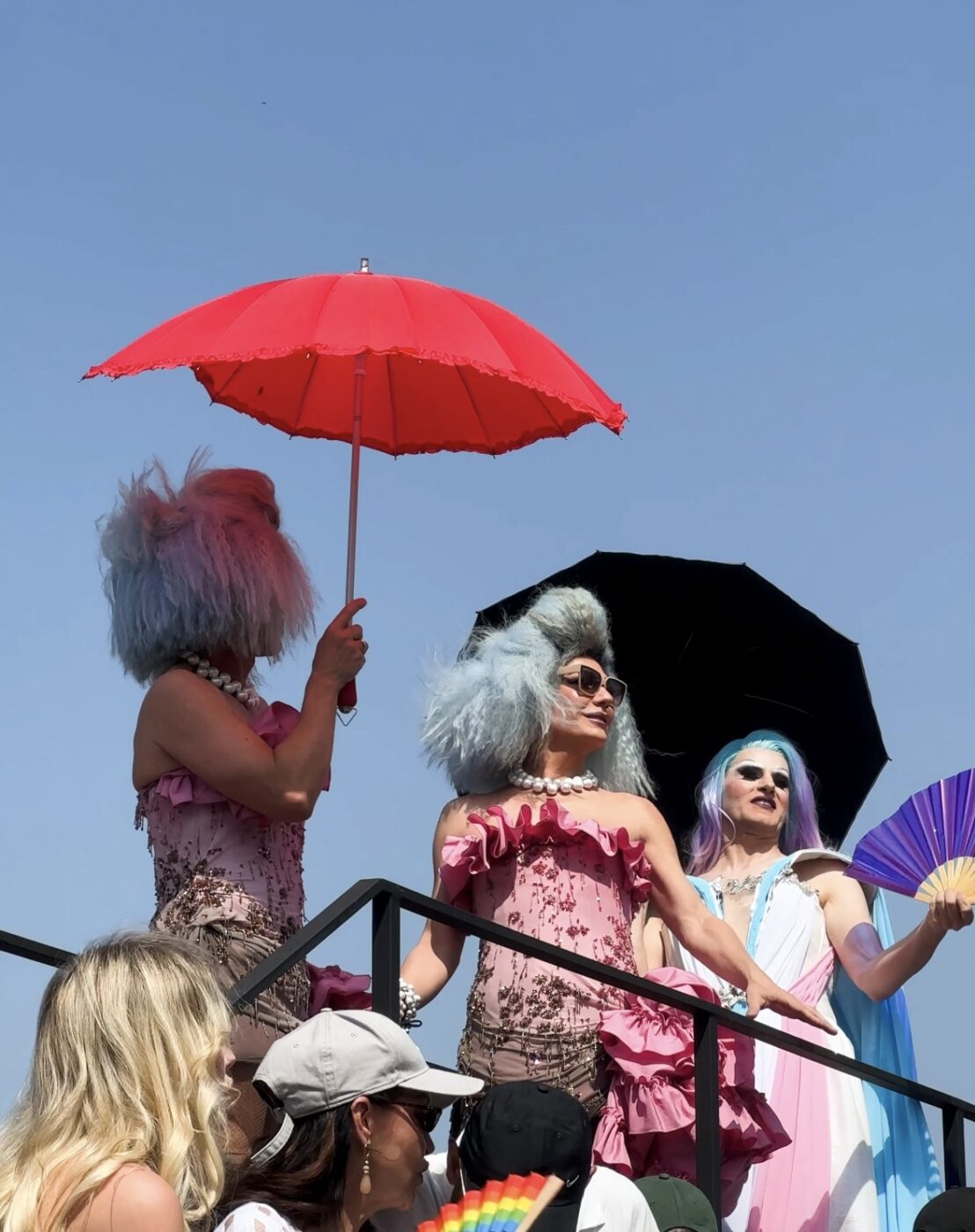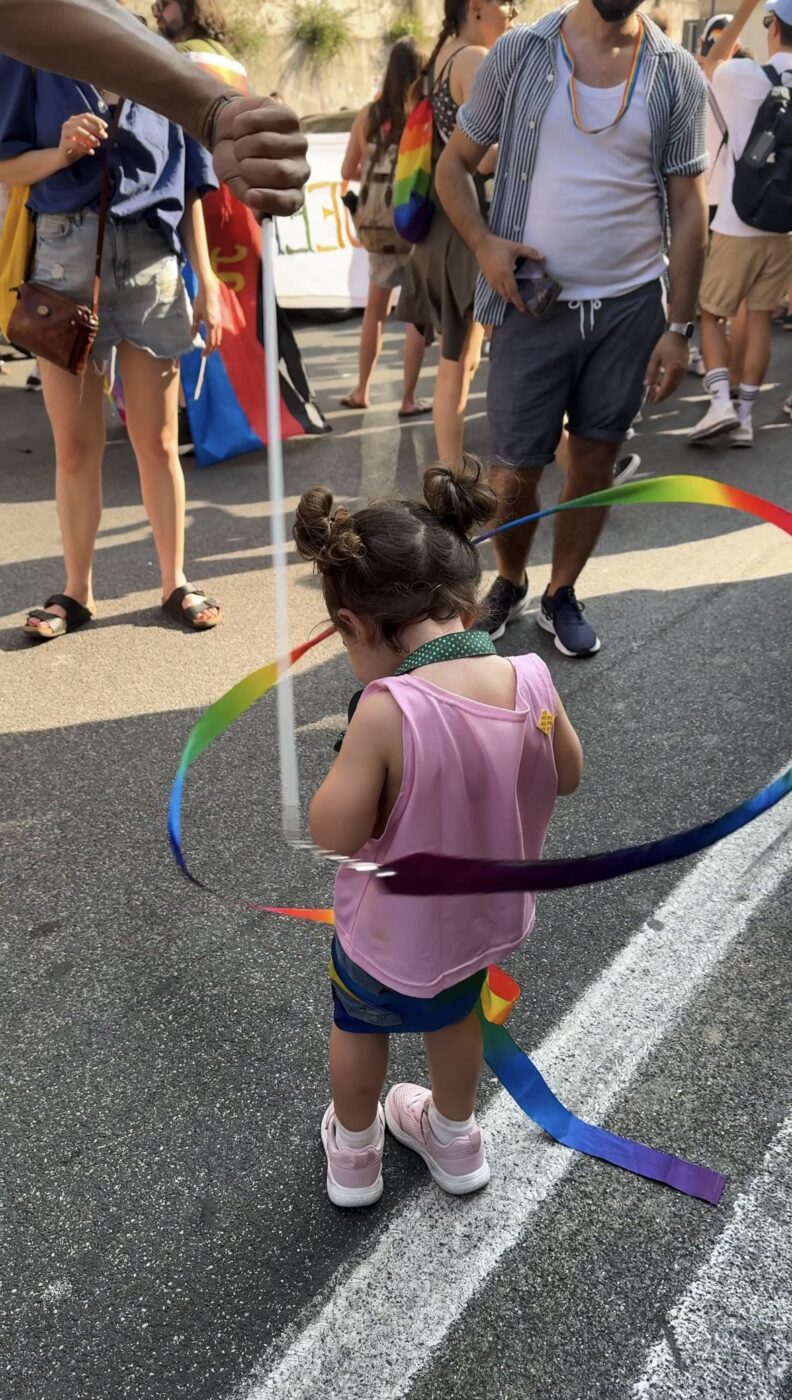For Pride Month, even Rome transforms. Forget the classical atmosphere, the cult of ruins, and the aura of gladiators. Queer Rome reveals a strange, almost lunar beauty. During the parade on June 14th—which, according to the organizers from Circolo Mario Mieli, brought a million people into the streets—the city was crossed by thousands of bodies in motion, each with its own language, rhythm, and aesthetic.
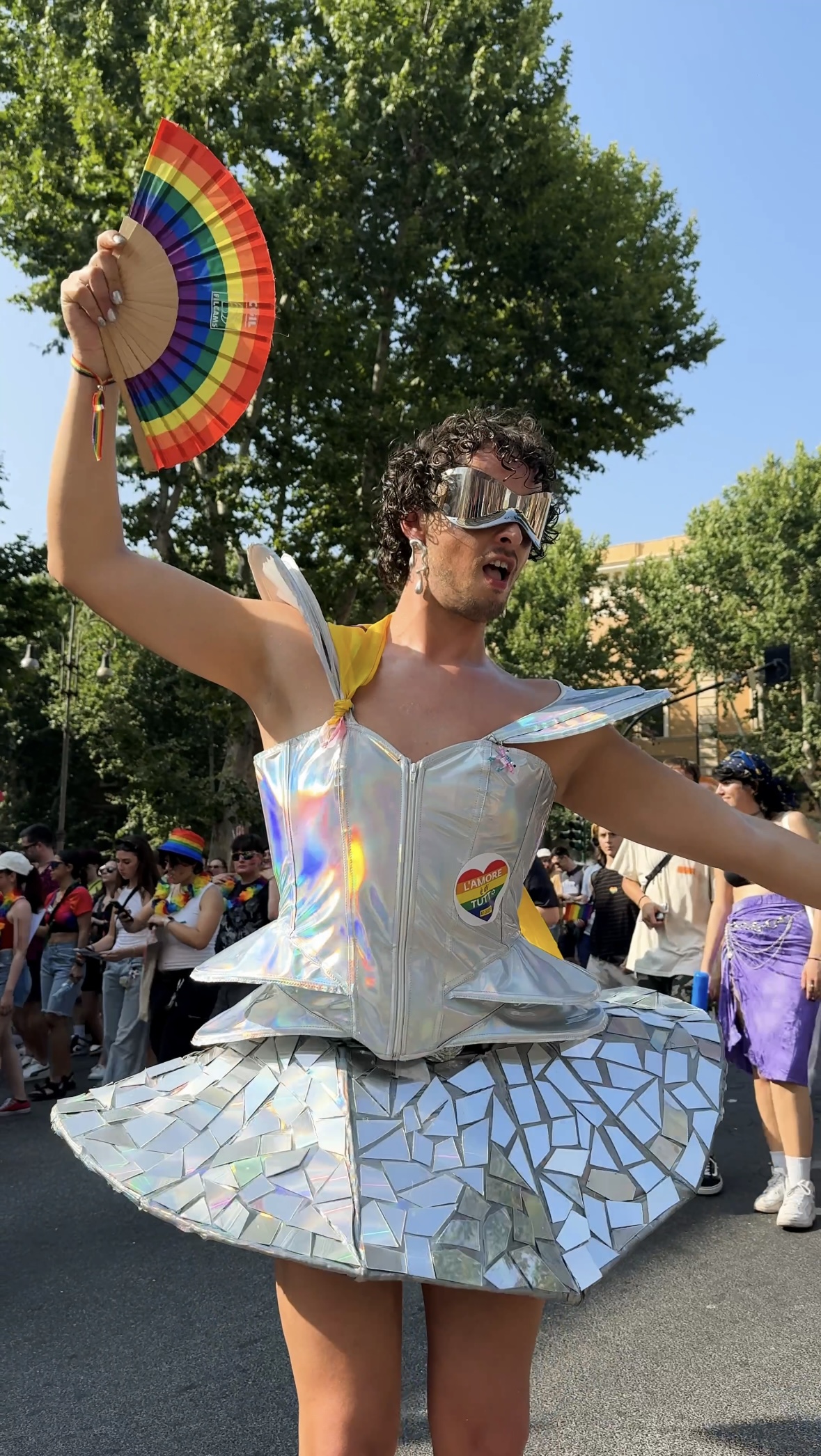
Rome shimmered: “Infinitamente brilliamo” (“We shine infinitely”) was the slogan chosen by Cosmopolitan magazine, which presented a float covered in illustrations by artist Flaminia Veronesi—an invitation to be light, a map where each person, with their utopias and visual imaginaries, becomes a constellation to navigate through dark times. “The first step to changing the world is to play with imagination,” Veronesi often says. For her, the joy of mixing different elements becomes a way to create new stories and imagine alternative realities. The float she designed evokes an inclusive, open universe—where every identity can shine in its own uniqueness, just as every star finds its place in the sky.
“We are such stuff as dreams are made on, and our little life is rounded with a sleep,” wrote Shakespeare in The Tempest—and never has a celestial metaphor more aptly measured the temperature of a country like Italy, where queer rights are far from fixed.
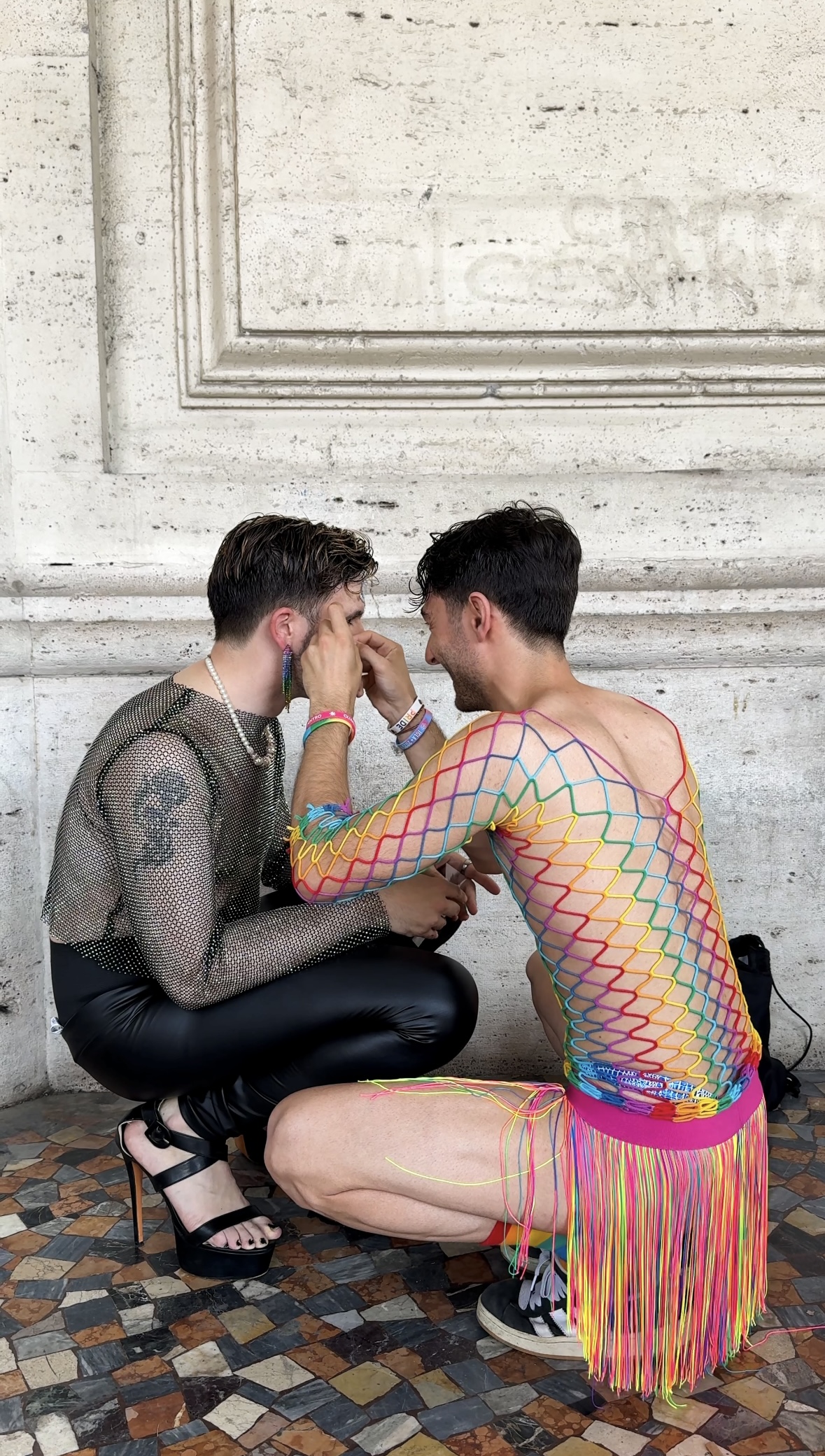
Gone are the days of random confetti and rainbow clichés: Rome Pride 2025 was a queer collage halfway between club culture and interstellar dreams—sci-fi and pop imaginaries that have educated entire generations (and continue to do so) in the idea that existence isn’t binary, because there is always space to reinvent the queer imagination. Dominating the scene was a radical aesthetic, where the flamboyance of drag gave way to simpler bodies. The sweltering heat encouraged more skin to be shown—and to be freed from rigid gender categories. Sexualized body expression was mostly seen among Millennials and parts of Gen Z, but the true revelation of this Pride was Generation Alpha (those between 12 and 17 years old), who chose to cover their chests with tape or sheer bodysuits not to provoke, but to assert their right to exist—as they have transitioned, or are in transition.
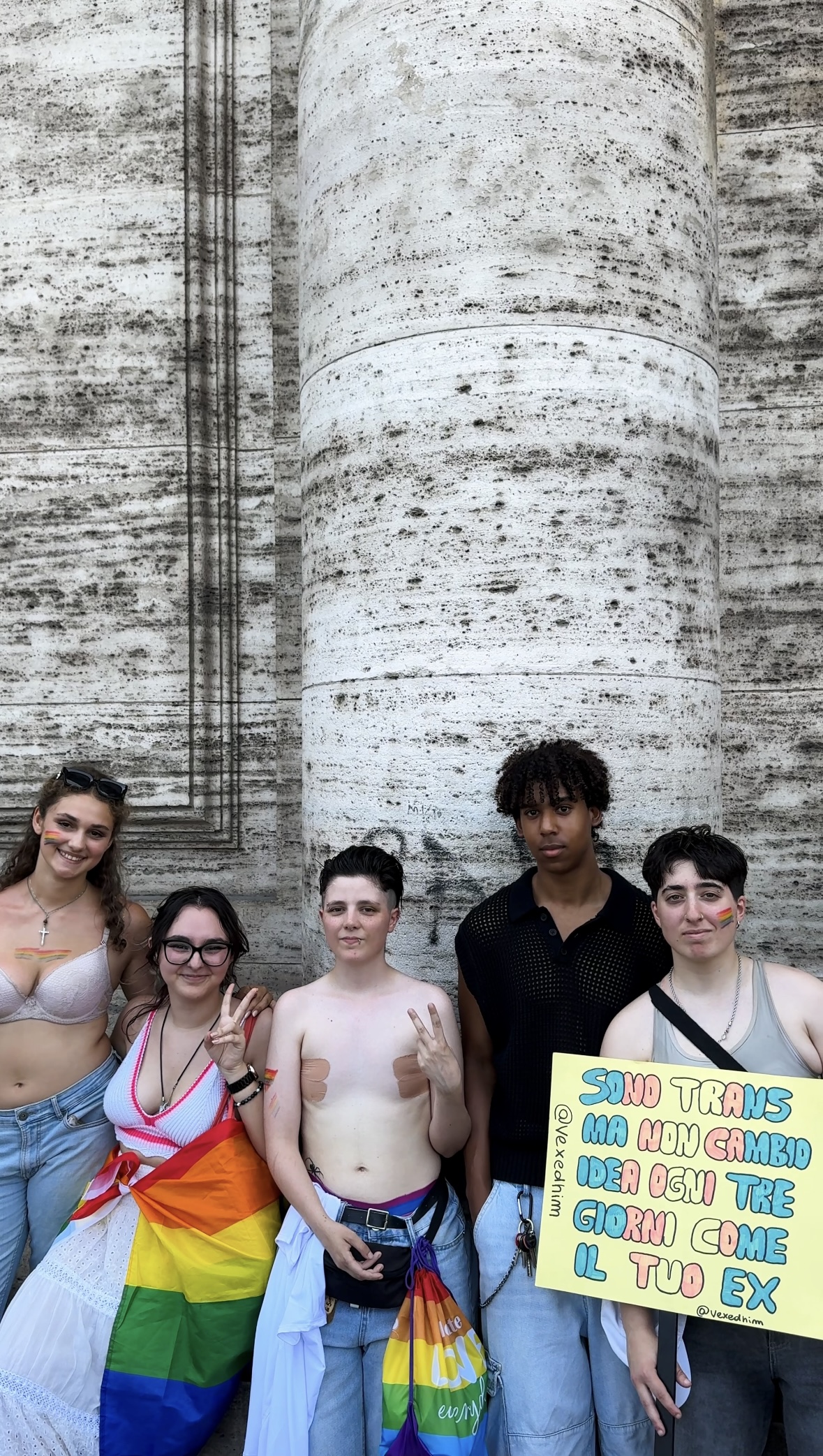
Even forms and movements often tied to hypersexualization—like reggaeton-style twerking—were reclaimed as identity statements, in a political climate where fluidity is seen as a threat to binary ideals. Unsurprisingly, the new pop pantheon shaping Generation Alpha is made up of artists like Chappell Roan, Victoria Monét, and Billie Eilish: goddesses of bold, unmistakably lesbian femininity, unafraid to show how desire between women can exist, proudly, as in Roan’s widely streamed single “Femininomenon”. Many of the young people marching are self-taught via TikTok, watch series that break the mold, and seem like hybrid creatures from an episode of Euphoria or an alternate season of Stranger Things. If the “Upside Down” was the elsewhere of the ’80s, today’s elsewhere is queerness—a space where normalcy flips, identity multiplies, and every body can exist outside of hierarchy. These are the myths replacing current political narratives, in a world in which war reflects what William Golding wrote in Lord of the Flies: “Man produces evil as a bee produces honey.”
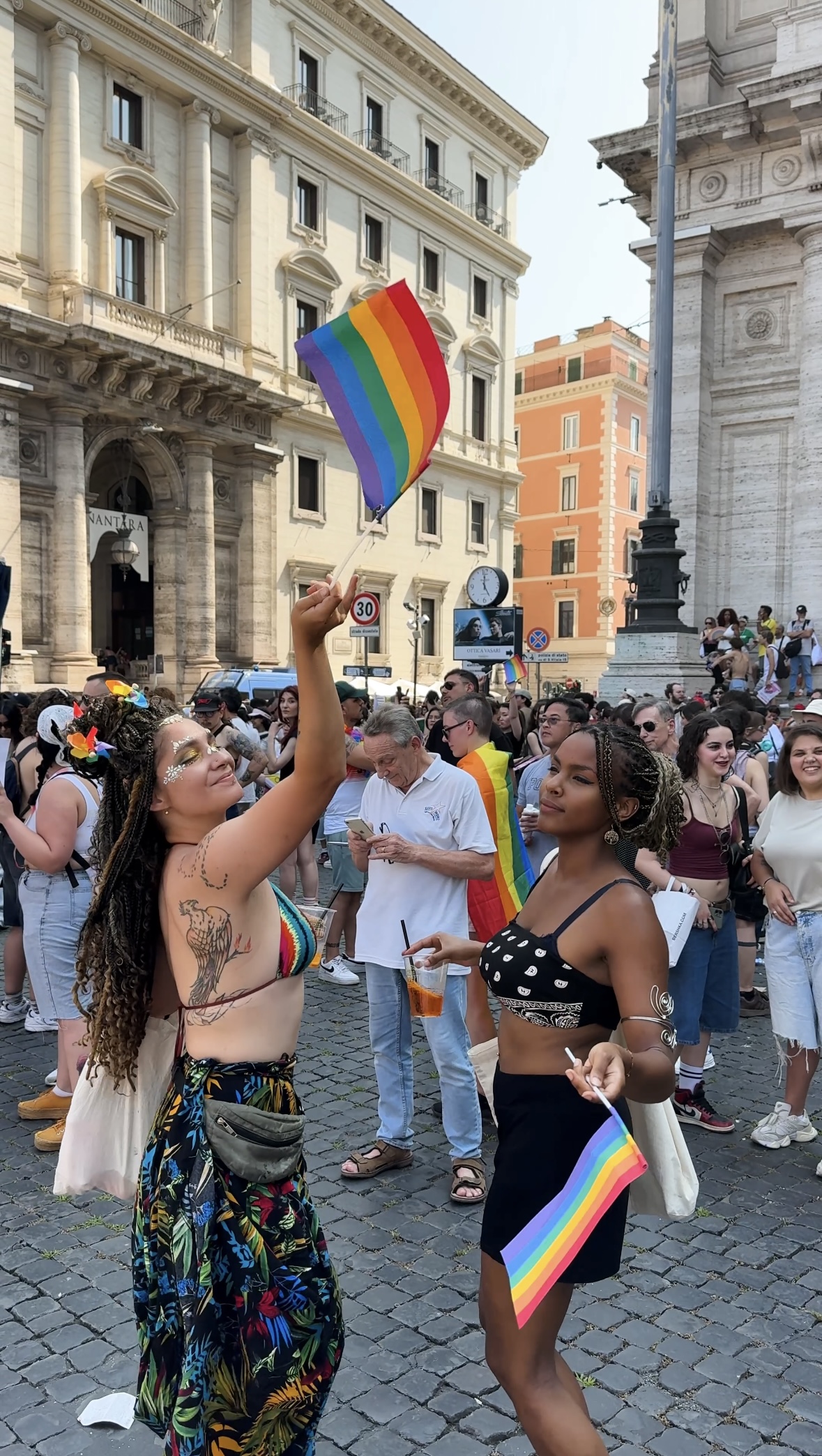
Italian pop star Rose Villain, age 35, was chosen as the “godmother” of Rome Pride 2025. She appeared on the float from Muccassassina, Rome’s iconic LGBTQIA+ club, staged as a stargate complete with shuttles and astronauts ready to dream of more welcoming planets. Today, even outer space has become a battleground for nationalist ambitions, and the message from Circolo Mario Mieli was to reclaim a cosmos made of big, fluid dreams—not aspirations locked away in a Silicon Valley garage. In this sense, the Rome Pride aesthetic was a fusion of body positivity and alien pop: glitter (used more sparingly now out of environmental respect) gave way to metallic makeup, translucent wings, and oiled bodies that mirrored other bodies. It’s a look with a taste of the near future, full of digital glitches and indie aesthetics—because to be queer is also to learn a new visual language.
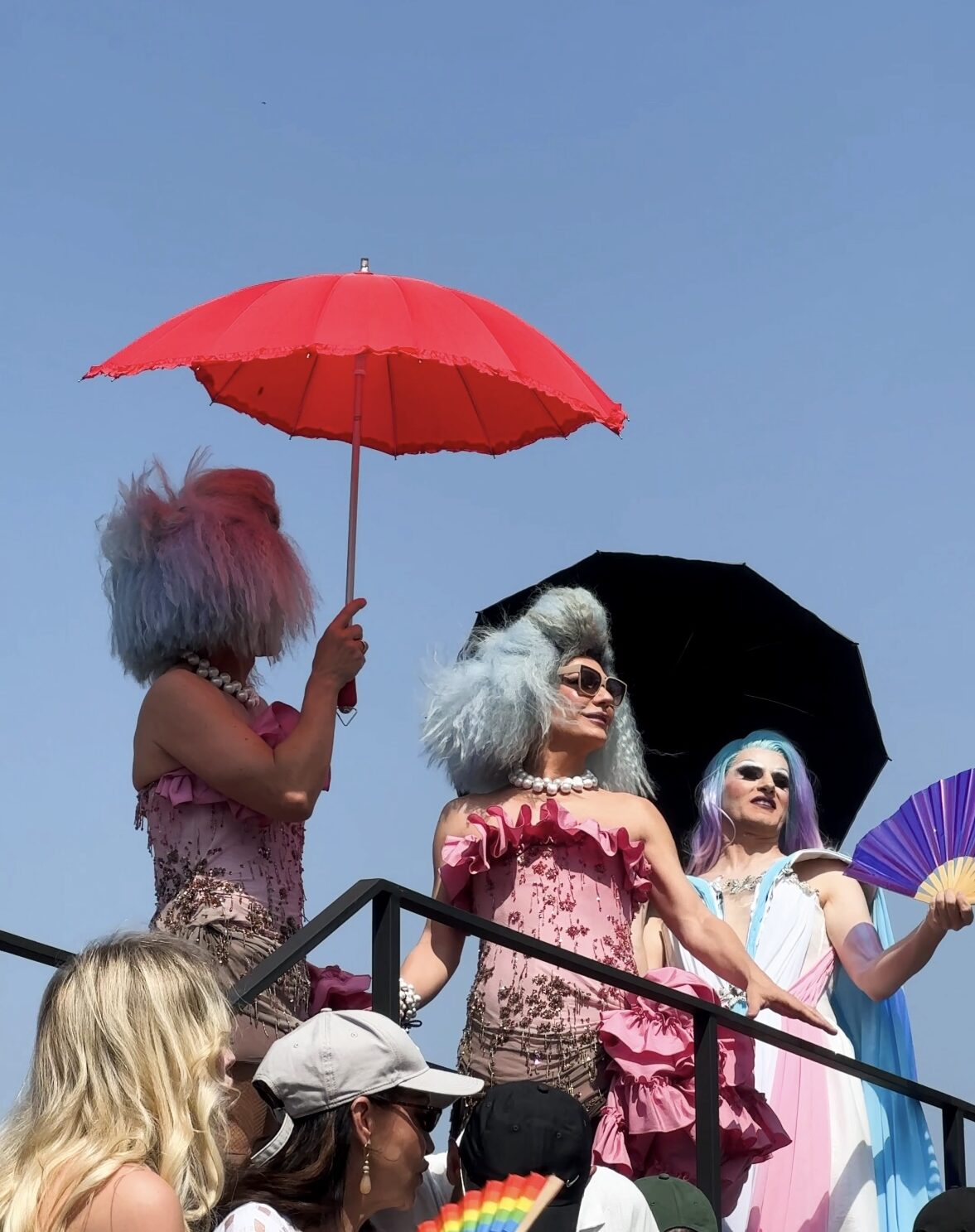
But the most tender moment arrived quietly, on the faces of the children from rainbow families who, in Italy, are increasingly threatened by laws equating surrogacy with a universal crime. On October 16th, 2024 the Italian Senate approved a law that declares surrogacy (GPA) a universal crime. In effect, this means surrogacy will be punishable in Italy even if carried out abroad, as long as Italian citizens are involved. The law raises serious concerns—particularly for same-sex couples, who face clear discrimination. It also jeopardizes the rights of minors, making it far harder to register birth certificates for children born via surrogacy abroad, and complicating their legal recognition and protections. To them, riding on a little white train in violet T-shirts and rainbow-painted faces, this Rome Pride was unofficially dedicated.
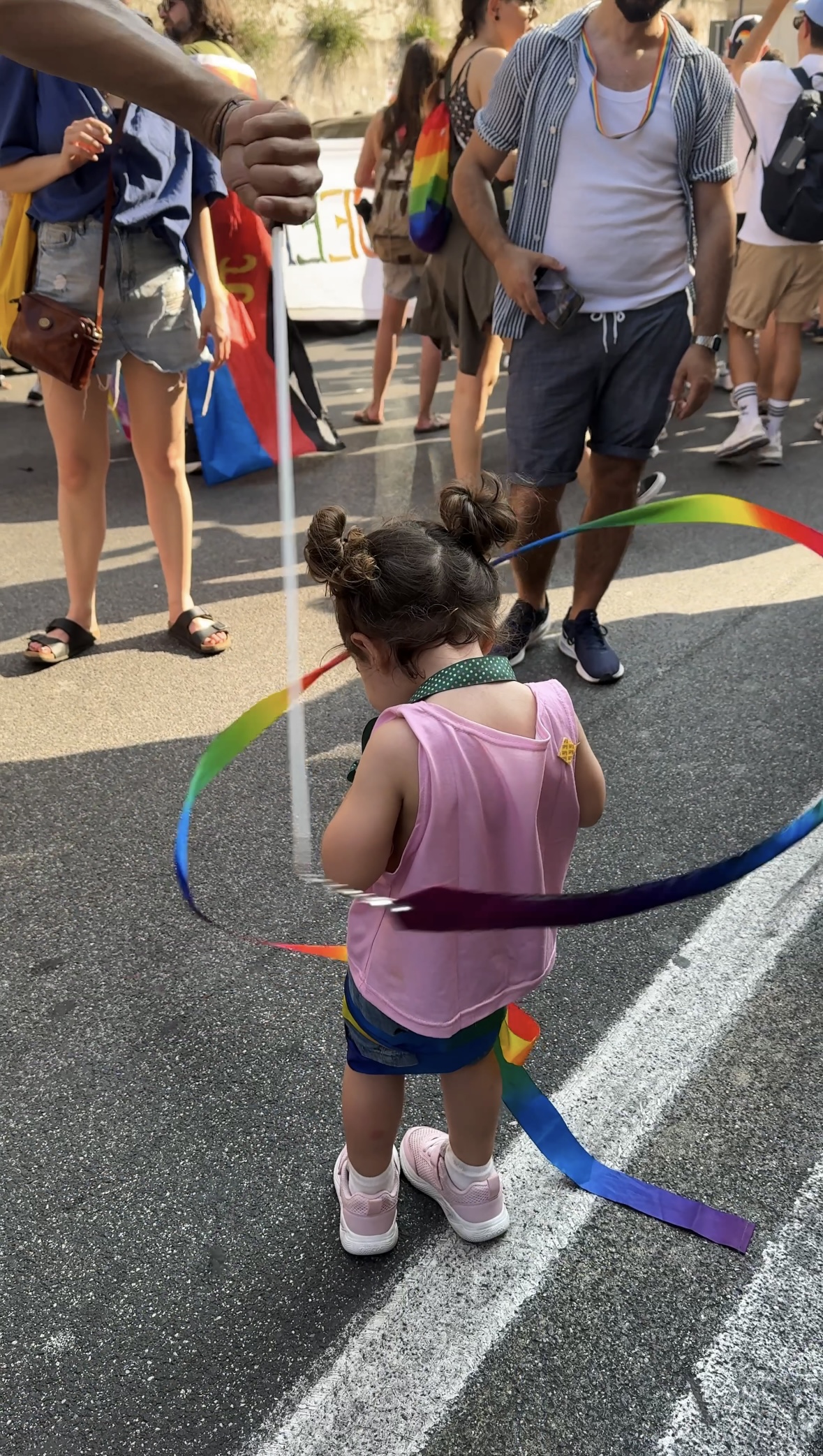
To reaffirm the proud presence of queerness in the capital of a country with a long history of activism, pain, and redemption—I’m thinking now of Mario Mieli, the 1970s gay liberation pioneer who challenged gender and sexuality norms through theater and performance, despite family conflict and deep depression that ultimately led to his suicide—is to open the door to a future where diversity can truly flourish.
This year’s Rome Pride hit differently. Beneath the thumping beats, the chants, the sea of colors, one simple truth came through loud and clear: dreams aren’t just fluff—they’re real, tangible, made of people moving together on the streets. The event’s cosmic vibe and visuals invited us to see the city in a new light. For a moment, Rome became a different planet—one ruled by the law that truly matters: the law of life, which is, always, a law of love. The space-themed looks—silver suits, otherworldly references—reminded us that the power to own our stories is ours alone. We can rewrite them, like Renaissance thinkers who imagined new cities and worlds in their treatises—utopias built on equality and reciprocity.
At a time when the LGBTQIA+ community is seen as alien, coming out as queer becomes an act of profound humanity—a feeling of belonging to a “cosmic us” that is never an escape, but a return: the beginning of a freer, truer narrative. Because revolution can also start with a ribbon worn across your chest or a crop top pulled from the closet at just the right moment—just like one’s self.
